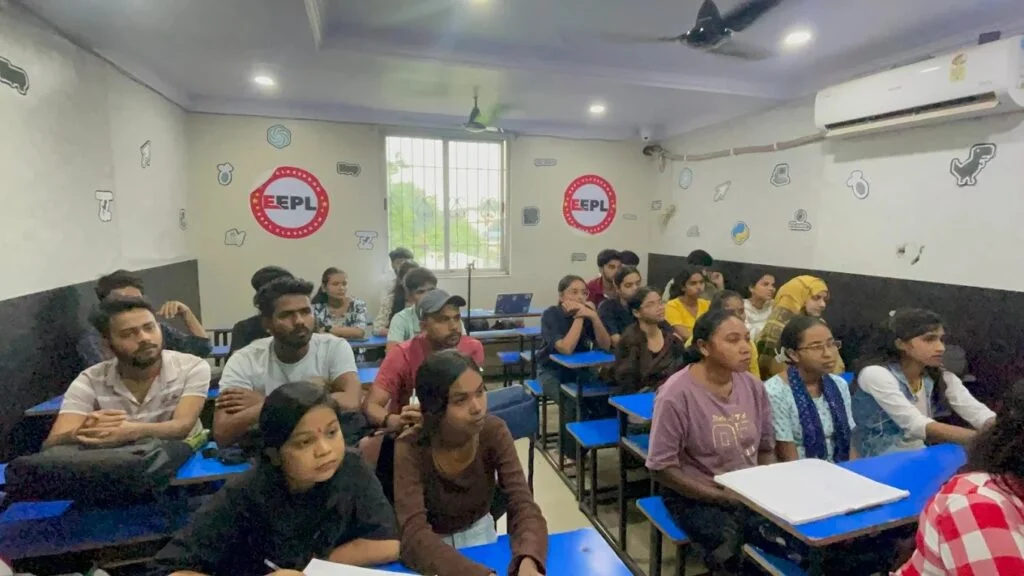Understanding Your Goals and Interests
Choosing the right college after completing your 12th grade is a pivotal decision that can significantly influence your future. To navigate this choice effectively, it is essential to engage in a thorough self-assessment process. This involves identifying your academic interests, career aspirations, and personal values, which serve as the foundation for aligning your college selection with your long-term goals.
Begin by reflecting on subjects that have truly captivated you throughout your academic journey. Consider which areas you found most engaging and stimulating. These interests can often guide your choice of major or field of study. For instance, if you have a passion for the sciences, exploring colleges known for their strong programs in biology, chemistry, or environmental science may be beneficial. Conversely, if the arts resonate more with you, researching institutions with a robust liberal arts curriculum could align better with your goals.
Career aspirations should also be taken into account. Reflect on potential career paths that pique your interest and investigate the educational requirements for those professions. Utilize resources such as career quizzes and skill assessments that can provide insights into your strengths and preferences. For example, tools like the Myers-Briggs Type Indicator (MBTI) or Holland Code assessment can help clarify which careers may best suit your personality and preferences.
In addition to academic and career-oriented goals, personal values also play a crucial role in your decision-making process. Consider factors such as campus culture, diversity, and extracurricular opportunities that are important to you. A college that aligns with your values can provide a supportive environment that fosters both academic and personal growth. Ultimately, taking the time to evaluate these aspects will empower you to make informed choices about your college education and the direction of your future endeavors.
Researching Colleges and Programs
Conducting thorough research on potential colleges and their academic programs is a vital step in making an informed decision about higher education. With the multitude of options available, it is essential to develop a systematic approach that encompasses several key factors. Firstly, consider the academic reputation of the institutions. Look for rankings from reputable sources, as well as feedback from educational professionals and alumni, to gauge the overall quality of the college. Pay particular attention to specialized rankings related to your field of interest.
Next, investigate the credentials of the faculty members within the departments you are considering. A robust faculty with advanced degrees and a track record of research can significantly enhance your educational experience. Beyond qualifications, consider their accessibility and commitment to student success, as this can directly influence your learning environment.
Campus culture is another crucial aspect to evaluate. Factors such as diversity, extracurricular opportunities, and the general atmosphere can greatly affect your college experience. Visiting the campus, if possible, allows prospective students to observe firsthand the vibrancy and inclusivity of the community.
Consider the support services offered by each institution. Counseling, tutoring services, and career guidance can be instrumental in your academic journey. Ensure that the college provides resources that align with your personal and academic needs.
Utilize online resources, such as college websites, forums, and review platforms to gather information. Engaging with current students through social media or official college events can provide invaluable insights into everyday life at the institution. Additionally, attending college fairs allows for direct interaction with representatives and can help clarify any lingering questions regarding admission processes, financial aid, and campus offerings.

Considering Location, Cost, and Size
When choosing the right college after 12th grade, several practical factors come into play, including location, cost, and the size of the institution. Understanding these aspects can significantly influence a student’s academic experience and personal growth.
Location is often one of the first considerations for students. Proximity to home can provide a sense of comfort and support, particularly for those who may benefit from staying connected with family during their college years. Additionally, students should contemplate whether they prefer an urban, suburban, or rural setting. Urban campuses often offer vibrant city life, with access to various cultural and recreational opportunities, while rural institutions may provide a quieter, more intimate learning environment. Each choice presents unique advantages and challenges that can impact a student’s lifestyle and academic focus.
Cost remains a crucial factor in making this significant decision. Tuition fees can vary widely between institutions, and students must carefully evaluate their financial situations. This assessment should include not only tuition but also additional expenses, such as textbooks, housing, and other living costs. Researching financial aid options and available scholarships is vital. Many colleges offer financial packages that can help alleviate the burden of tuition and living expenses. Students should also consider the cost of living in various locations, as urban areas may have higher living costs compared to rural regions.
The size of the college can also affect a student’s educational journey. Larger universities often provide a wider array of resources, clubs, and social opportunities; however, they might also lead to a more impersonal experience. In contrast, smaller colleges can foster closer relationships between students and faculty, enhancing participation and support in academic endeavors. Determining the ideal size largely depends on personal preferences and academic goals.
Visiting Campuses and Making the Final Decision
Visiting potential college campuses is a crucial step in the college selection process after 12th grade. A campus tour provides invaluable insights into the learning environment, overall atmosphere, and available resources. Engaging in campus visits allows prospective students to visualize themselves in the space, making these experiences essential to informed decision-making. During these tours, individuals should pay attention to certain elements that reflect the institution’s culture and values.
When embarking on a campus visit, it is highly advisable to attend scheduled information sessions. These sessions are designed to present the college’s programs, financial aid options, and application processes. They may also offer a platform to address any questions or concerns directly. Interacting with current students during these events can provide additional perspectives about student life and the overall experience of attending that college. Asking about the availability of clubs, extracurricular activities, and support services can give deeper insights into how well the institution aligns with one’s needs and interests.
More
As you navigate the campus, observe the facilities, including libraries, dining halls, and recreational spaces. An institution’s resources often indicate its commitment to student success and well-being. Look for signs of maintenance and care within the campus environment which reflects the institution’s values and priorities. Furthermore, take note of the interactions among students and faculty; this can give a sense of the community dynamics and level of engagement present on campus.
After gathering this information, it’s crucial to evaluate it critically. Individuals should compare the experiences and perspectives obtained from multiple visits, making a pro and con list if necessary. This structured approach will help in weighing all gathered information and ultimately lead to a decision that feels right for each individual.
Read Our Latest Blog
Understanding the Theory of Relativity in Simple Words
Phone Number: +91-7488456170
Email ID: abhishek@eepl.me
Our Platforms:
Digilearn Cloud
EEPL Test
Live Emancipation
Follow Us on Social Media:
Instagram – EEPL Classroom
Facebook – EEPL Classroom
Stay connected and keep learning with EEPL Classroom !











